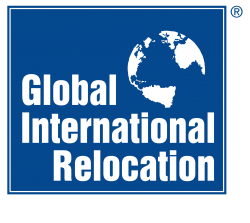A relocation is much more than just packing and shipping.
Moving to another country involves more than choosing a house or transporting your belongings. The city you live in, the school your children attend, the services you rely on, and the rhythm of everyday life all have a direct impact on how well you and your family adapt.
That’s why an Orientation Visit is such a crucial step for families preparing for an international relocation. It allows for informed decision-making and helps anticipate challenges, reducing surprises upon arrival.

What is an Orientation Visit?
An Orientation Visit is a short, strategic trip to the destination country, taken before the final move. The goal is to gain a realistic understanding of what life will be like, visiting neighborhoods, exploring commute times, touring schools, and getting a feel for day-to-day life.
Unlike a tourist trip, this is a practical and purposeful visit, designed to evaluate whether the destination fits the needs and expectations of the individual or family.
What should an Orientation Visit include?
At Global, we tailor each visit to the client’s profile and priorities, but there are key aspects that should always be considered:
- Residential areas – safety, accessibility, local commerce, green spaces, and surroundings
- Education – visits to public, private, and international schools, including application processes and location
- Transport – access to workplaces or schools, public transport options, road infrastructure
- Services – proximity to hospitals, supermarkets, pharmacies, cultural venues, and leisure areas
- Real cost of living – price of essential goods, average rental costs, taxes, and everyday expenses
- Climate and urban feel – pace of life, public safety, and how the city functions day to day
Common mistakes during an Orientation Visit
A poorly planned visit can lead to decisions that negatively affect adaptation and quality of life. These are some of the most common pitfalls:
- Choosing unrepresentative dates: Many people travel during school holidays, long weekends, or local festivities. These times can give a distorted view of the city, with quieter streets, closed services, or minimal traffic, which don’t reflect the usual rhythm of life.
- Focusing only on specific areas: Tourist zones often look more organized, clean, and attractive but they rarely reflect everyday life. Prices tend to be higher, and the experience may lack authenticity or practicality, especially for families. On the other hand, focusing only on residential areas may cause you to overlook important aspects like access to commercial zones, cultural hubs, international schools, or transport networks.
- A balanced approach is key: explore various types of neighborhoods and compare what each offers in terms of accessibility, services, lifestyle, and cost.
- Ignoring the family’s perspective: Often, just one family member, typically the relocating employee, takes the trip. But successful adaptation depends on everyone. Feelings of safety, access to education, daily mobility, and social integration affect spouses and children in different ways. Include your family in the experience. Let them participate in visits, ask questions, and imagine their routine in the new environment.
How Global can help
At Global International Relocation, we offer fully customized Orientation Visits, tailored to each client’s needs and lifestyle.
We handle the entire process, from scheduling school and property visits to on-the-ground support by experienced local consultants. We also provide language support, logistical guidance, and a structured itinerary to make the most of your time.
At the end of each visit, we deliver clear and practical recommendations, aligned with both the realities of the destination and the client’s personal or corporate goals.
A successful relocation begins with an informed and confident decision. If you’re considering an international move, the best first step is a professionally planned Orientation Visit.
Contact us to learn how we can help turn uncertainty into clarity, with a plan that’s built around you.


